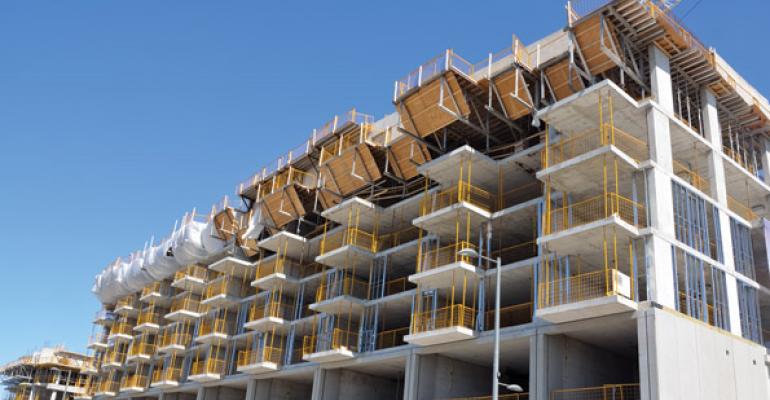(Bloomberg)—SoftBank Group Corp. led an $865 million investment in Katerra Inc., a little-known construction-technology startup seeking to shake up the building industry.
Katerra’s valuation is now more than $3 billion, said Michael Marks, the chairman and co-founder. He said the company has about $1.3 billion in bookings for new construction projects.
The investment is the sixth biggest for a U.S. venture-backed company in the past year, according to data from research firm CB Insights. In addition to SoftBank’s Vision Fund, new investors include a fund overseen by Soros Fund Management, the Canada Pension Plan Investment Board, Tavistock Group, and real-estate investment funds Navitas Capital and Divco West. Jeffrey Housenbold, a managing partner at SoftBank Investment Advisers, will join Katerra’s board.
The Vision Fund, with a $100 billion target, has taken stakes in scores of companies over the past year, including Uber Technologies Inc., Slack Technologies Inc., WeWork Cos. and Chinese ride-hailing company Didi Chuxing. In December, the fund put $450 million into Compass, a real-estate tech firm. The fund made about 100 investments last year with a total value of $36 billion, according to research firm Preqin. That’s more than Silicon Valley heavyweights Sequoia Capital and Silver Lake, combined.
Before starting Katerra, Marks led technology manufacturer Flextronics International for 13 years. He took a company with less than $100 million in sales and turned it into the world’s largest maker of electronics, making everything from Xbox game consoles to Hewlett-Packard printers, reaching revenue of about $16 billion. He left Flextronics in 2006, and then was a partner at KKR & Co. and a technology investor.
Marks founded Katerra in Menlo Park, California, with Jim Davidson, a founder of private-equity firm Silver Lake, and Fritz Wolff, executive chairman of a real-estate investment company. Katerra’s goal is to help build construction projects faster and at lower costs by controlling all aspects of the process from design through construction. Materials are meant to arrive at building sites only when they’re needed and are ready to assemble.
The technique will be expensive to pull off. Katerra has raised more than $1 billion of capital just in the last two years from the likes of Foxconn Technology Group and Khosla Ventures. Last year, the company started building a factory in Phoenix to make wall panels, cabinets and countertops for apartments. Katerra also said it’ll build a factory in Eastern Washington for making a type of environmentally friendly engineered timber that should be strong enough to replace concrete and steel.
The construction industry has a different set of challenges from electronics. It involves a patchwork of local building codes, as well as varying weather and seismic conditions, Marks said. Projects take several years and sometimes run out of funding before they’re done. While Katerra will ship pre-assembled walls, floors and cabinets from its factories, there will still be a considerable amount of assembly work on site.
Marks said Katerra can overcome these hurdles and estimated that the business will have sales of $10 billion within the next decade. “It’s very similar to Uber or Airbnb or WeWork,” Marks said. “It’s tech guys in Silicon Valley driving into a new industry that has never had any technology. Construction is one of the worst.”
The company’s business plan lets it take advantage of a housing boom in many U.S. cities, the Trump administration’s focus on infrastructure spending and a desire for more green building materials. At the same time, the construction boom has led to a shortage of skilled workers needed to execute Katerra’s aggressive home building plans.
Katerra is focusing on five types of residential buildings: multifamily, student, senior, hospitality and, starting next year, single-family homes. It will start about 30 projects this year, Marks said. Construction will mainly take place in the U.S., although Katerra is looking at some joint ventures overseas.
--With assistance from Pavel Alpeyev.To contact the author of this story: Dina Bass in Seattle at [email protected] To contact the editor responsible for this story: Mark Milian at [email protected] Reed Stevenson
COPYRIGHT
© 2018 Bloomberg L.P

